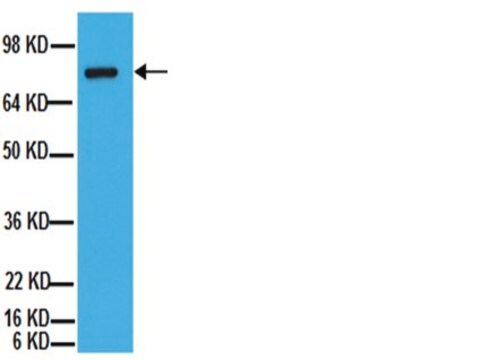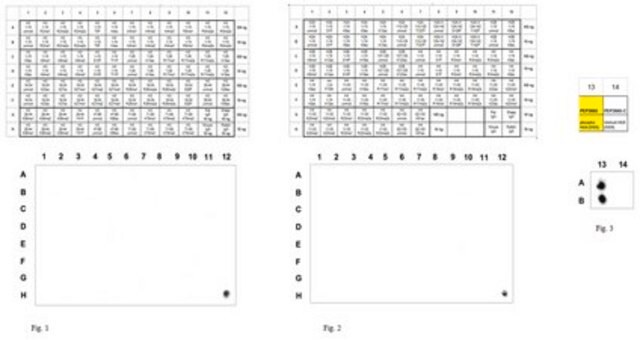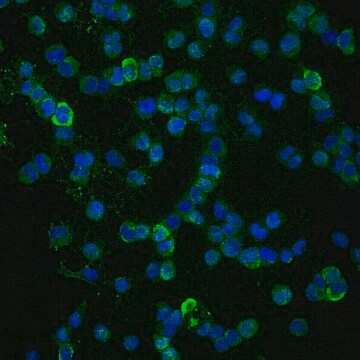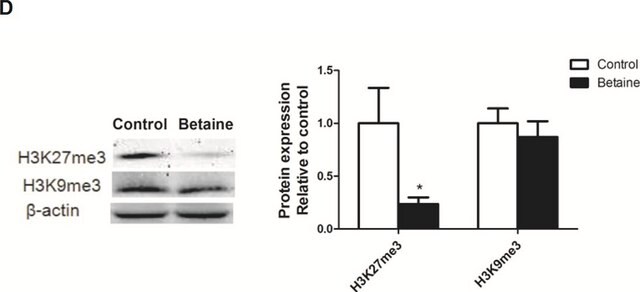AB19027
Anti-ADAM 17 Antibody
Chemicon®, from rabbit
Synonym(s):
A disintegrin and metalloproteinase domain 17, ADAM metallopeptidase domain 17, ADAM metallopeptidase domain 17 (tumor necrosis factor, alpha,converting enzyme), CD156b antigen, Snake venom-like protease, TNF-alpha convertase, TNF-alpha converting enzyme
About This Item
Recommended Products
biological source
rabbit
Quality Level
antibody form
purified antibody
antibody product type
primary antibodies
clone
polyclonal
species reactivity
human, mouse
species reactivity (predicted by homology)
rat
manufacturer/tradename
Chemicon®
technique(s)
immunocytochemistry: suitable
western blot: suitable
NCBI accession no.
UniProt accession no.
shipped in
wet ice
target post-translational modification
unmodified
Gene Information
human ... ADAM17(6868)
General description
Specificity
Immunogen
Application
Cell Structure
MMPs & TIMPs
1:500 - 1:2,000 dilution from a previous lot was used. HeLa or Jurkat whole cell lysate can be used as a positive control and 80 to 130 kDa bands can be detected which may represent mature protein, precursor, and glycosylated TACE.
Immunocytochemistry:
Optimal working dilutions must be determined by end user.
Quality
Immunocytochemistry Analysis: Confolcal fluorescent analysis of A431 using rabbit anti-ADAM 17 polyclonal antibody.
Target description
Physical form
Storage and Stability
Handling Recommendations:
Upon receipt, and prior to removing the cap, centrifuge the vial and gently mix the solution. Aliquot into microcentrifuge tubes and store at -20°C. Avoid repeated freeze/thaw cycles, which may damage IgG and affect product performance.
Analysis Note
Human Cell lysate - whole cell (MDA-MB231 Cell Line)
Other Notes
Legal Information
Disclaimer
Not finding the right product?
Try our Product Selector Tool.
Storage Class Code
10 - Combustible liquids
WGK
WGK 2
Flash Point(F)
Not applicable
Flash Point(C)
Not applicable
Certificates of Analysis (COA)
Search for Certificates of Analysis (COA) by entering the products Lot/Batch Number. Lot and Batch Numbers can be found on a product’s label following the words ‘Lot’ or ‘Batch’.
Already Own This Product?
Find documentation for the products that you have recently purchased in the Document Library.
Our team of scientists has experience in all areas of research including Life Science, Material Science, Chemical Synthesis, Chromatography, Analytical and many others.
Contact Technical Service








